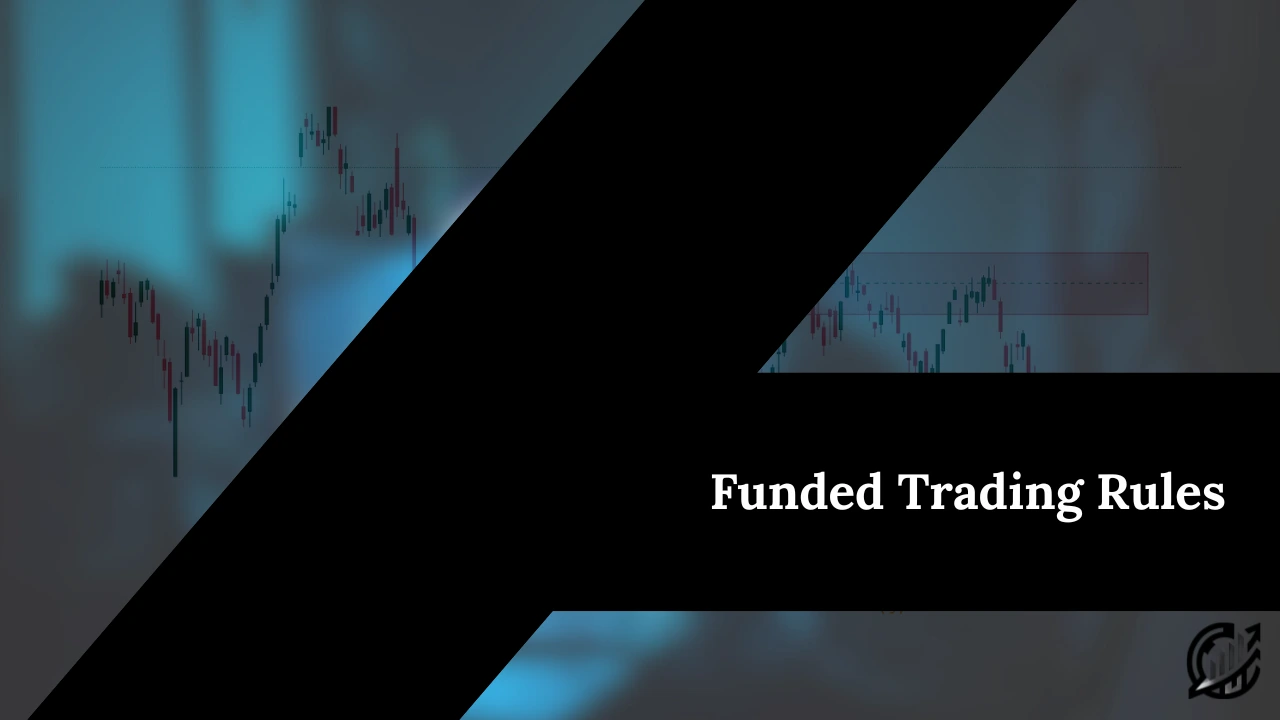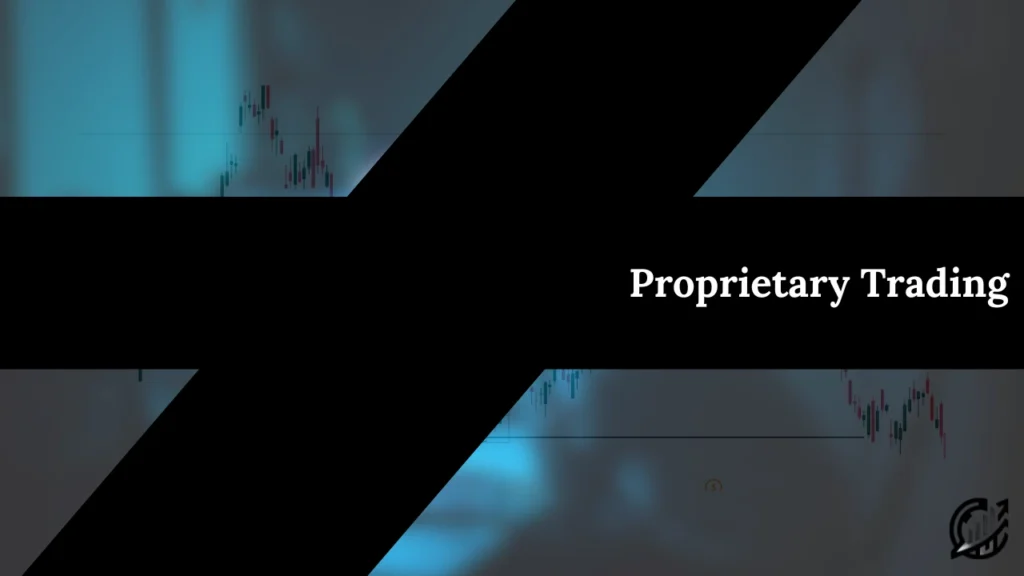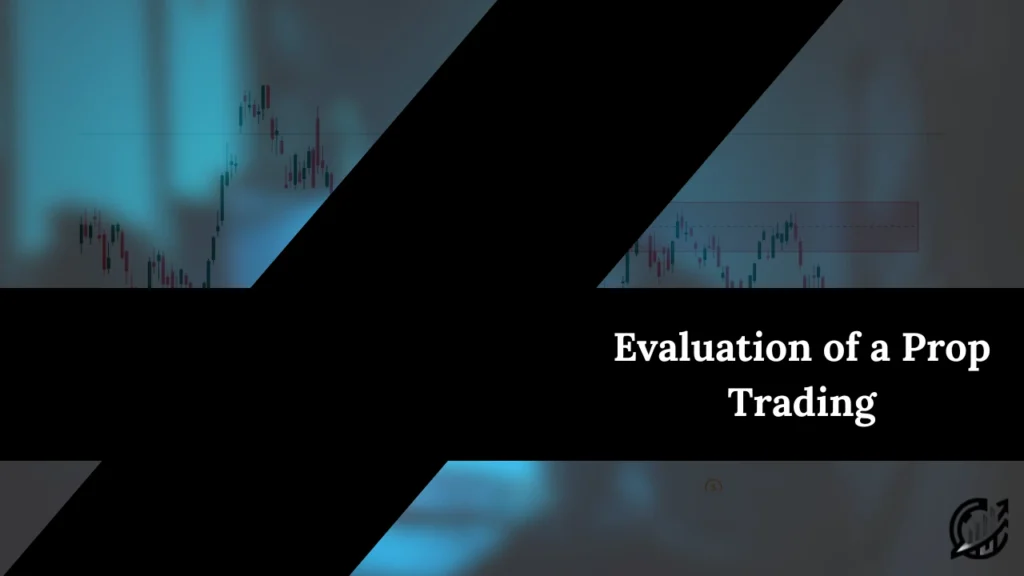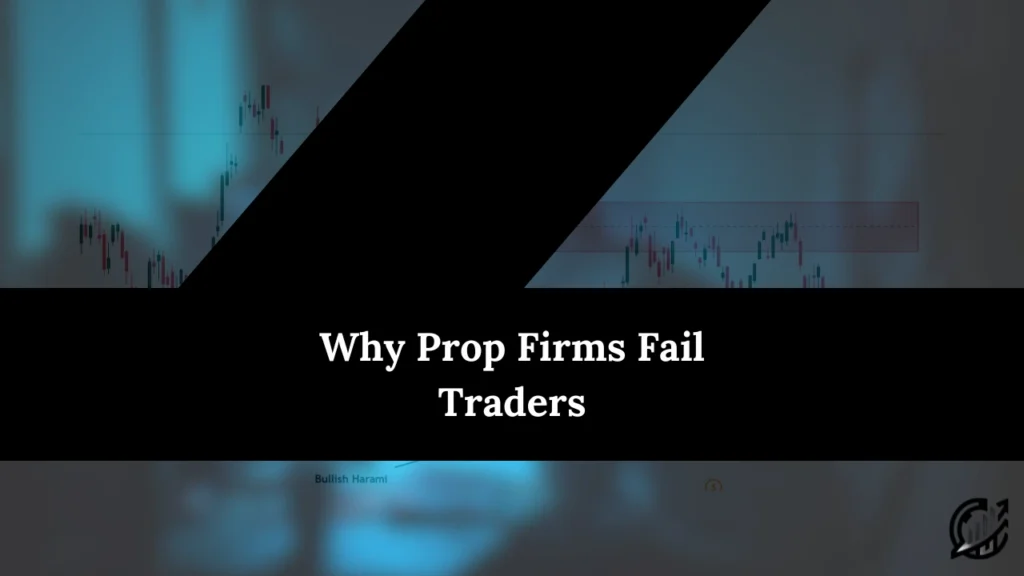
Table of Contents
In today’s trading scenario, getting funded by a prop firm is a dream of many traders. The reason is large capital, huge profit splits and the opportunity to scale your income without risking personal income. However, things are not as simple and simplistic as seen by traders.
It is recommended to understand the rules and restrictions that govern funded trading accounts. These rules are made to make you psychologically ready for disciplined trading. These rules are not made to restrict and limit your potential. These rules protect you and firm’s capital.
This article explores the most common funded trading rules, the reason behind their existence, and how traders align with them to succeed.
Funded Trading Rules
Understanding and adhering to prop firm trading rules is the foundation of long-term success in prop trading. Among various trading rules is the drawdown limit. The ultimate goal of these rules is to protect capital at any cost. Almost all rules are made to protect capital.
Daily Drawdown Limit
It is one of the most violated rules of funded trading. The daily drawdown limit specifies the maximum loss you can afford in a single trading day. This includes both closed and floating losses.
For example, if your prop firm gives you a $100,000 account with a 5% daily drawdown limit, you cannot lose more than $5,000 in any 24-hour period. If your equity dips below $95,000 temporarily due to open trades, the account can be breached.
This rule ensures that traders maintain intraday risk discipline. Prop firms manage large amount of capital. With this, traders cannot wipe out significant portion of the firm’s equity in a single trading session.
This rule teaches traders to manage position size, avoid revenge trading, and stay emotionally strong after losses.
Maximum Overall Drawdown
This rule defines how much a trader can lose overall before your account is terminated. For example, if your max loss is 10% on a $100,000 account, you equity must never drop below $90,000.
Some firms use trailing drawdown which moves as your equity grows. While other use static drawdown, fixed from your starting balance.
Traders who follow this rule do not blow up entire funded account. Funding firms fun thousand of traders worldwide. That is the reason the firms enforce an overall drawdown cap ensures that no single trader can cause catastrophic losses.
It also encourages careful planning instead of gambling with large positions.
Profit Target and Minimum Trading Days
Every evaluation phase in prop firm trading includes a profit target. It is a predefined percentage you must reach to pass. In FTMO, there is a 10% target in the challenge phase and 5% in the verification phase.
Along with that there are minimum trading days that every funded trader should complete. These days from 5 to 10. This imposition of minimum trading day requirement ensures you achieve profits through consistent executions.
Funding firms value consistency over one-time performance. The minimum trading days rule ensure that traders are using systematic approach rather than relying on luck or market anomalies.
New Trading Restriction
Many prop firms prohibit trading high-impact news event like Central Bank announcement, NFP or CPI reports. This clearly means that you cannot open or close trades within a few minutes before or after such release.
This rule exists because news releases can trigger extreme volatility, widening spreads, slippage, and erratic price moves.
However, check you firm’s specific rule because there are funding firms that allows news trading. Every firm has their own trading policy.
Leverage and Lot Size Restrictions
Although many prop firms offer high leverage (up to 1:100 or even 1:200), they often limit position sizing. Traders may not be allowed to open positions exceeding a certain number of lots per symbol.
These rules are designed to prevent over-leveraging and maintain stability in risk across accounts. They expect traders to use leverage wisely. This rule teaches traders to scale position responsibly.
Weekend and Overnight Holding Rules
Not all firms have same rules. Some funding firms restrict traders from holding positions overnight or over weekends, especially on simulated accounts. Other allow it only on specific accounts like swing accounts.
Price gaps that occur after market closure can cause huge amount of losses. To manage risk, firms restrict holding trades during these times. However, there are trading firms that allows it.
This ensures that sudden geopolitical or macroeconomic news doesn’t create losses beyond trader’s control.
Scaling and Withdrawal Rules
Once funded, some firms offer their clients scaling plan. In this plan, capital increases based on performance milestones. Remember, scaling and payouts typically come with conditions such as consistent profits over multiple cycles and maintaining drawdown control.
Scaling plan reward discipline and consistency. However, the funding firms only expand capital with proven traders. Withdrawal rules balance firm liquidity while offering traders fair profit-sharing opportunities.
Account Inactivity or Rule Violations
Most prop firms monitor trading activity and rule adherence. Never inactive your account for too long because there is a chance of suspension.
Inactive accounts represents capital that can be allocated to other active traders.
Why These Rules Exist
No matter how big a firm is, there lies a one fundamental objective – risk control. Proprietary trading firms operate with their own capital or pooled investor funds. These rules can help them protect capital, encourage discipline, and ensure sustainability within their trading ecosystem.
The following are the reasons these rules exist:
- Their ultimate aim is to protect firm’s capital. These rules save firms from excessive losses.
- Prop firms do not like traders who can make money once. They are constantly searching for consistent and disciplined performers. Enforcement of these rules encourage composure, patience, and a structured approach to trading.
- These rules prevent emotional and impulsive trading. These rules help traders remain objective in trading and measured in their own action.
- Traders who follow structured approach to trading makes him ready for long-term relationships. These rules make traders ready for it.
Final Thought
Long-term success in prop firm demands structured trading. Hese rules are not make to hold you back, but if we scrutinize them, they are designed to transform retail traders into disciplined professionals.
Traders who thrive are those who plan risk carefully, stay patient under pressure, maintain consistency, and respect the system that funds them.
It is recommended that before applying to any prop firm, study its rules thoroughly. The more you align yourself with these frameworks, the greater your chances of getting funded.
FAQs
Why do Prop Firm have so many trading rules?
Prop firms implement strict trading rules to protect capital and assess trader who are discipline and motivated. These rules control risk-taking, professional conduct, and consistent performance.
What is a Daily Drawdown limit in Prop Trading?
A daily drawdown limit sets the maximum amount a trader can lose in one trading day, usually around 4 to 5% of the account balance. Breaching this rule results in account termination.
Are Prop Firms rules the same for all funding firms?
No. Core principles are same like drawdown limits and risk control are standard, each firm has its own variations in profit targets, time limits, and trading restrictions. Always review a firm’s rulebook carefully before starting an evaluation.
I’m Abdullah Shah, a content writer with three years of experience in crafting engaging and informative content. My background in market analysis complements my work, allowing me to create content that resonates with audiences. I’m also a seasoned practitioner in the forex and crypto markets, with a strong foundation and deep interest in finance. My passion for the financial world drives me to produce content that is both insightful and valuable for those interested in understanding market trends and financial strategies.





